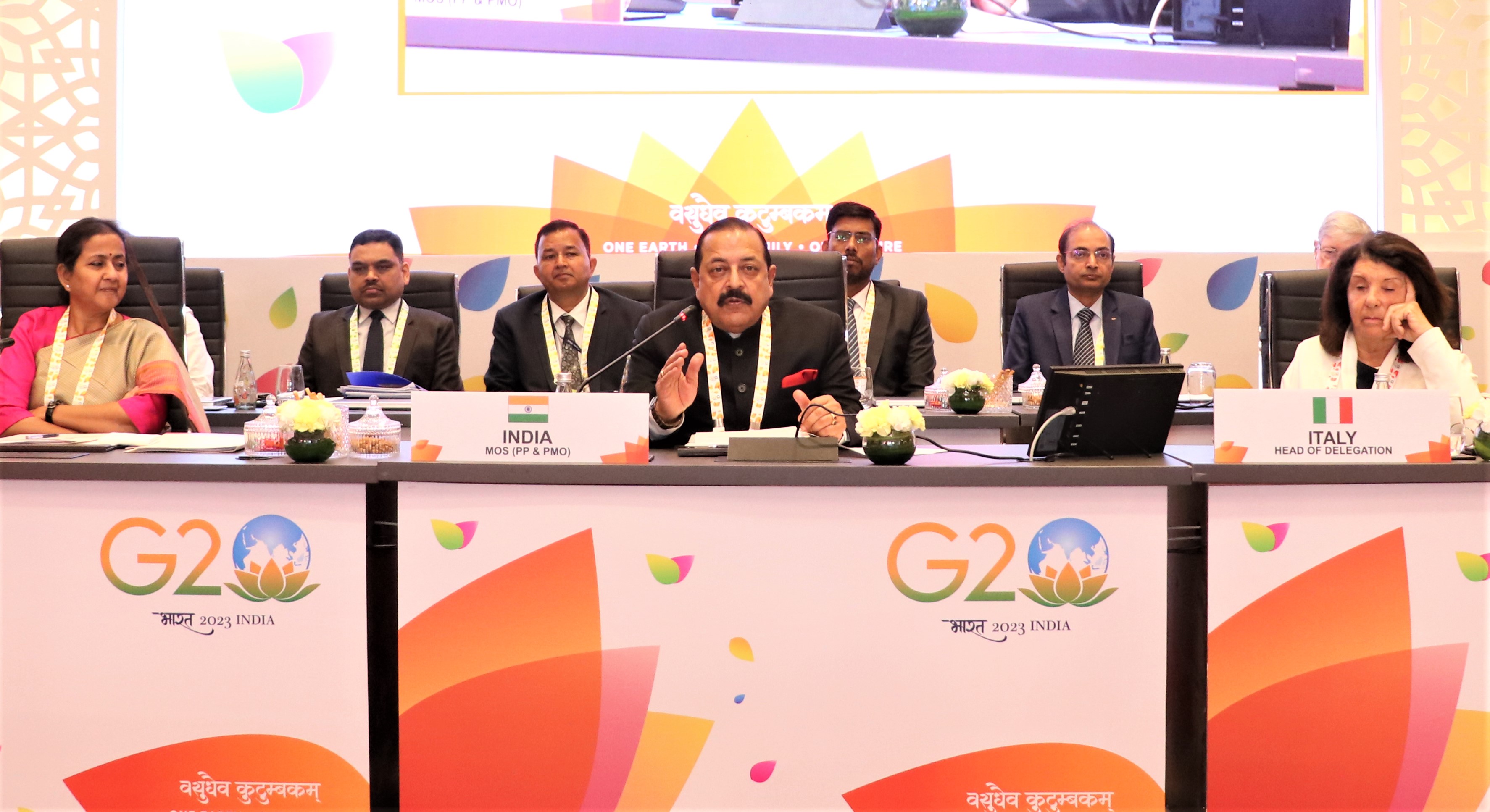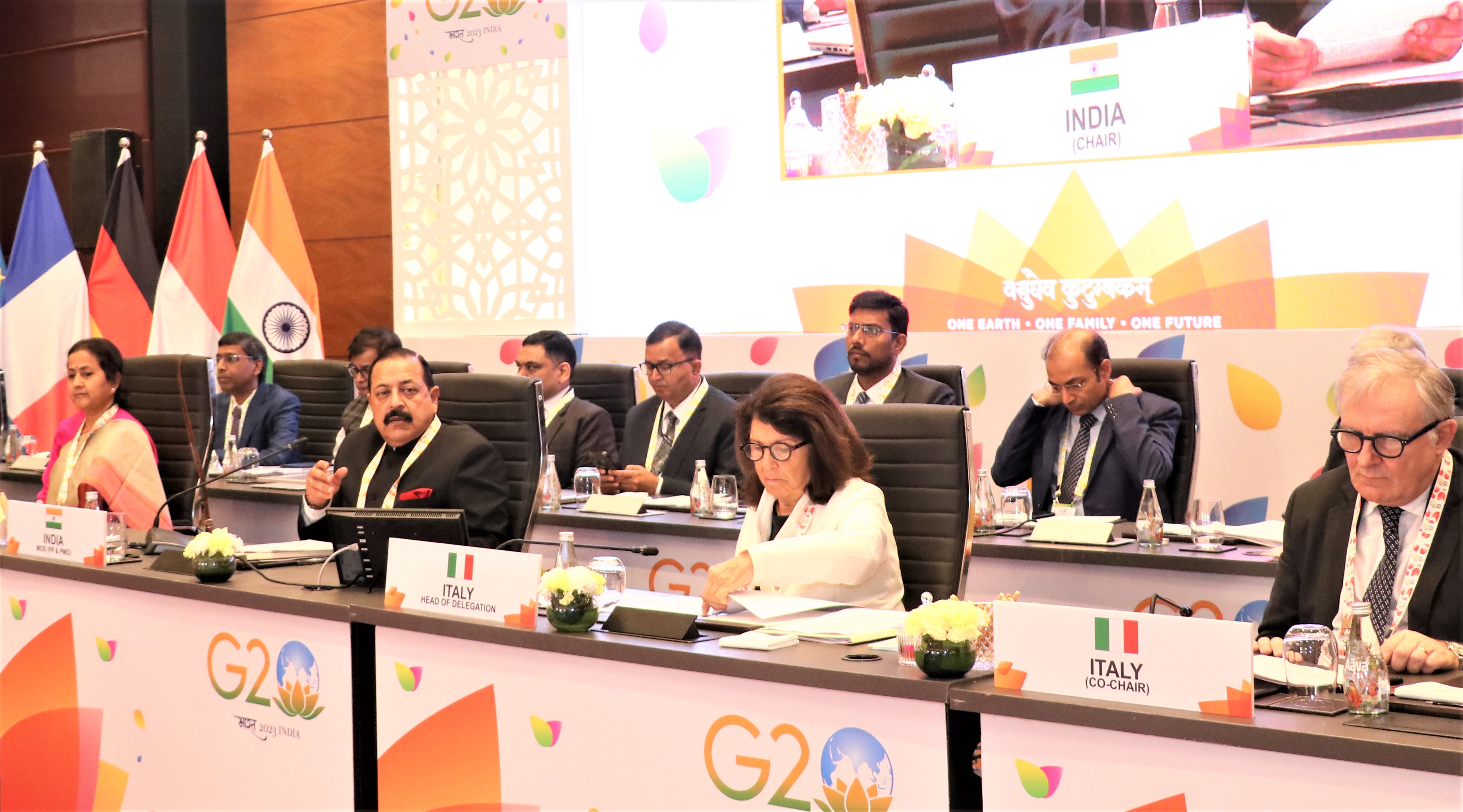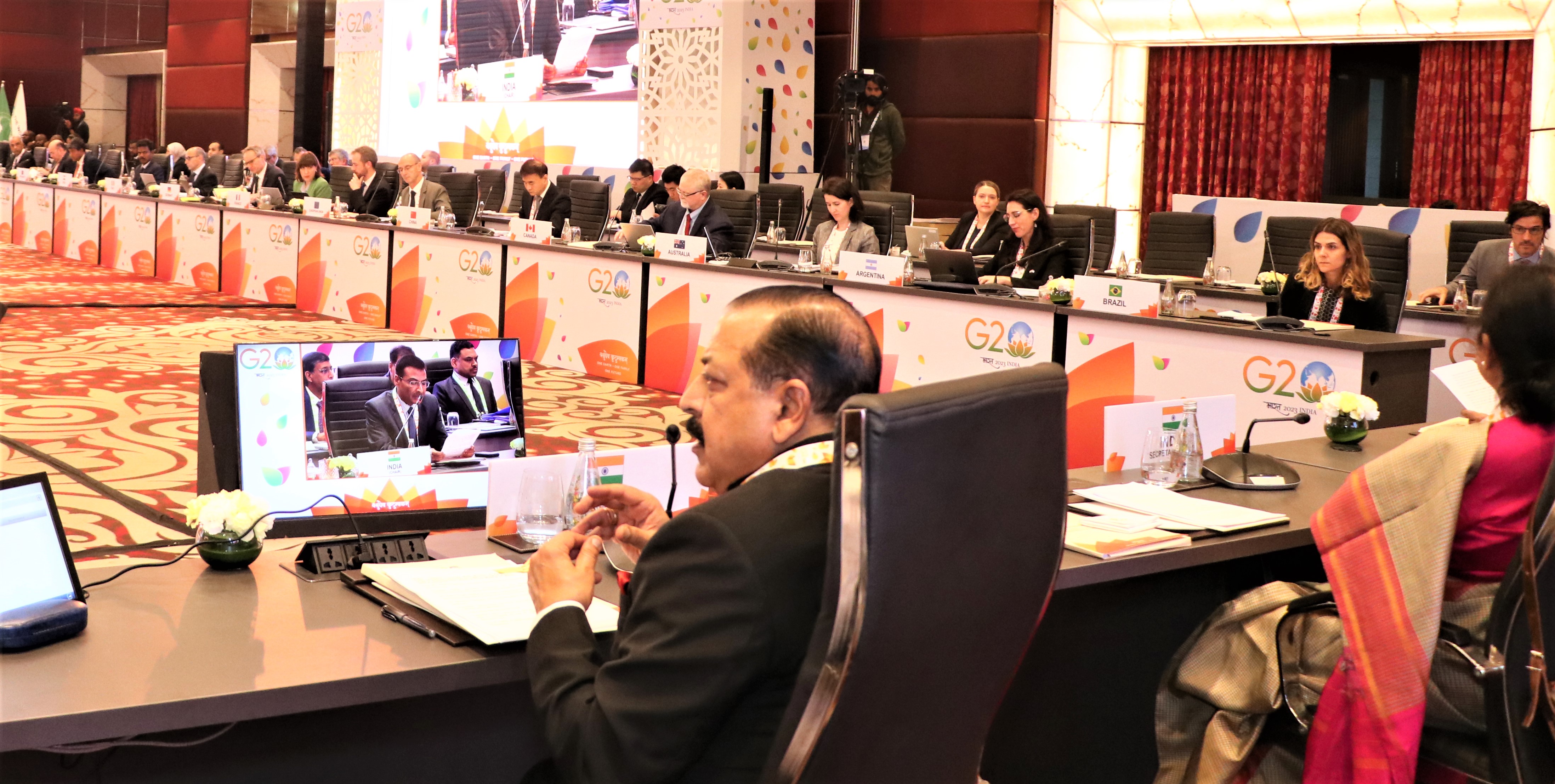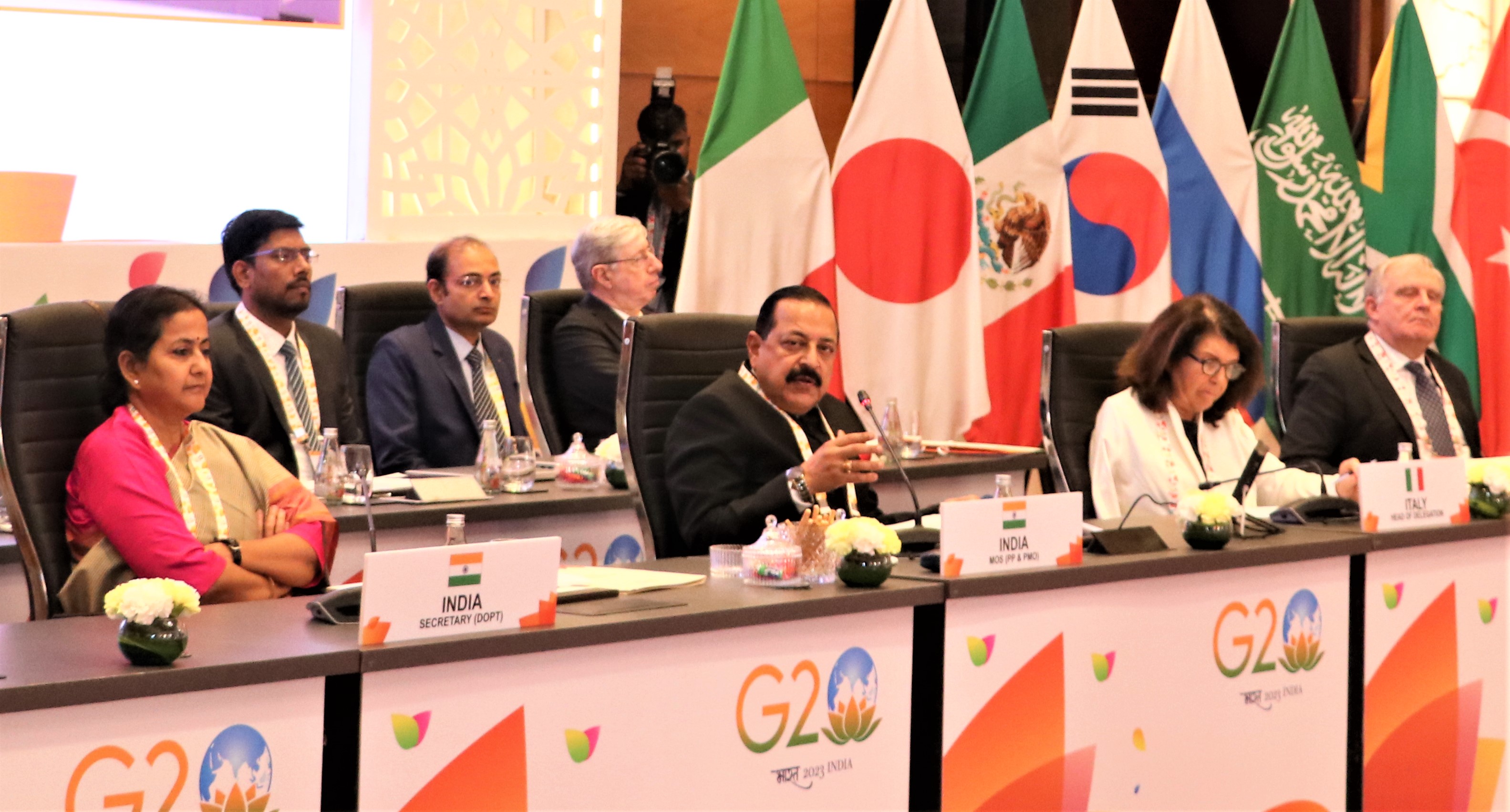Ministry of Personnel, Public Grievances & Pensions
India calls upon G-20 Nations to adopt multilateral action for faster extradition of fugitive economic offenders and recovery of assets during the 1st Anti-Corruption working group meeting of G-20 nations held in Gurugram, Haryana today
Charing the Meet, Union Minister Dr Jitendra Singh said in his inaugural address that Prime Minister Narendra Modi has envisioned developing such an administrative ecosystem for a developed India, which has zero-tolerance for corruption
Enforcement Directorate has transferred assets worth about USD 180 billion to public sector banks that suffered losses to the tune of around USD 272 billion due to frauds committed by high-net-worth individuals: Dr Jitendra Singh
Posted On:
01 MAR 2023 4:50PM by PIB Delhi
India today called upon G-20 Nations to adopt multilateral action for faster extradition of fugitive economic offenders and recovery of assets both on domestic front as well as from abroad during the 1st Anti-Corruption working group meeting of G20 nations held in Gurugram, Haryana.
Charing the Meet with Co-Chair Italy, Union Minister of State (Independent Charge) Science & Technology; Minister of State (Independent Charge) Earth Sciences; MoS PMO, Personnel, Public Grievances, Pensions, Atomic Energy and Space, Dr Jitendra Singh said in his inaugural address that Prime Minister Narendra Modi has envisioned developing such an administrative ecosystem for a developed India, which has zero tolerance for corruption.

Dr Jitendra Singh said, “Economic offences have been a problem faced by many, especially when the offenders flee from the jurisdiction of the country. India has put in place a specialized legislation in this regard, in the form of Fugitive Economic Offenders Act, 2018, the term wherein ‘fugitive economic offender’ (“FEO”) is defined as an individual against whom a warrant of arrest in relation to Scheduled Offence has been issued by any court in India and who has left the country so as to avoid criminal prosecution; or the FEO abroad, refuses to return to face criminal prosecution”.
Dr Jitendra Singh also informed the Media that the Enforcement Directorate has transferred assets worth about USD 180 billion to public sector banks that suffered losses to the tune of around USD 272 billion due to frauds committed by high-net-worth individuals.
Dr Jitendra Singh informed the G-20 Delegates, India’s view is that strengthening of mechanisms for speedy confiscation of the proceeds of crime, both at home and abroad, will force the offenders to return to their home country. He added that this will allow for an effective investigation and speedy trial for the related offence and this would also help the banks and other financial institutions and tax authorities to achieve recovery from defaults committed by such FEOs, thus restoring, to some extent the overall health of these banks and other financial institutions, while eliminating the possibility of further misuse of these funds.

Dr Jitendra Singh said, corruption is a complex social, political, and economic challenge affecting all countries and in a globalized world, corruption has ramifications well beyond the G20. He said, it adversely impacts the effective utilization of resources, creates market distortions, adversely impacts the quality of life of citizens, impacting the benefits of globalization and consequently, economic growth and overall governance and most disproportionately affecting the poor and most marginalized.
The Minister said, there have been numerous instances of financial or banking frauds that were investigated under relevant statutory provisions that involved high net worth individuals where the proceeds of crime involved was more than USD one billion. He also elaborated for the first time the impact of corruption on Gender and on Poverty reduction programmes.
Dr Jitendra Singh said, for better coordination, streamlining of the judicial processes and timely disposal of cases, there is a requirement for multilateral action rather than bilateral coordination, which proves to be more complex and presents obstacles in making progress on cases related to FEOs and recovery of related assets.
Dr Jitendra Singh said, as the primary forum for global economic cooperation, the G20 has to take responsibility to lead global efforts towards battling the menace of corruption. Since its inception in 2010, the G20 Anti-Corruption Working Group (ACWG) has been at the forefront of addressing all forms of corruption, the Minister added.

The G20 ACWG has demonstrated its commitments by adopting anti-corruption principles and other deliverables, such as compendiums of good practices, annual accountability reports and holding side events. The Indian G20 Presidency will build on the robust foundation laid in the G20 ACWG during the previous presidencies and further strengthen the G20 nations’ commitment to ensuring zero tolerance against corruption.
Dr Jitendra Singh reminded that Prime Minister Modi has stated at numerous occasions – “A safe and secure world is our shared responsibility. When the forces of good cooperate, the forces of crime cannot operate”.
The Minister emphasized that India’s G20 presidency will focus on providing an effective, efficient, and responsive mechanism on asset recovery and information sharing between the G20 countries.

In his concluding remarks, Dr Jitendra Singh said, it is important that all the State parties reflect the same determination against corruption and expressed confidence that the Anti-Corruption Working Group, under the chair ship of India and co-chairship of Italy, will come up with substantial outcomes aimed at preventing and combatting corruption.
<><><><><>
SNC
(Release ID: 1903393)
Visitor Counter : 1716